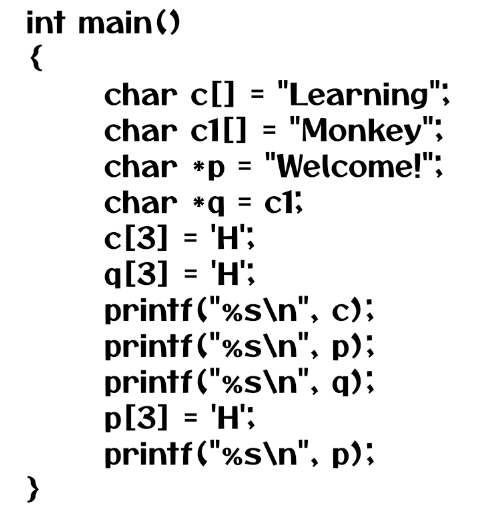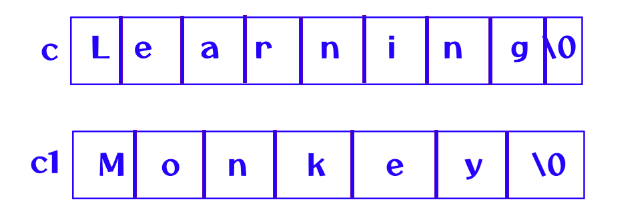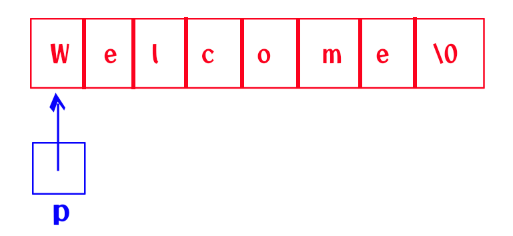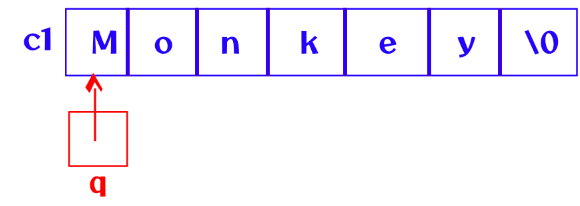Pointers and Strings in C
In this class, we will try to understand Pointers and Strings in C.
We already had our discussion on pointers and strings.
Pointers and Strings
We will try to understand the concept of pointers and strings using the programming example below.

In the above example, the first two lines of code create the strings c and c1, as shown below.

We have created a pointer p to the string in the third line of code, as shown below.

The pointer to a string is created as similar to the ‘string,’ we can access the elements of the string pointer, but we can not modify the ‘elements’ of the string pointer.
In the fourth line of code, the pointer variable q will be pointing to the string c1.

Now the string pointer is not a string constant.
The fifth and sixth lines of code modify the third element of the string c and q to H, respectively.
The seventh, eighth, and ninth lines of code are printing the strings c, p, and q as LeaHning, Welcome!, and MonHey.
The tenth line of code is essential to understand because we are trying to modify the string pointer.
The modification of the string pointer is NOT possible.
So, the compiler will produce a run time error and has undefined behavior.
On our compiler, the compiler will NOT execute the lines below it.
